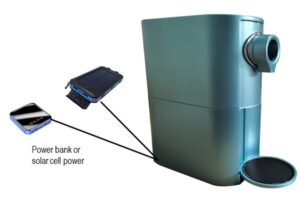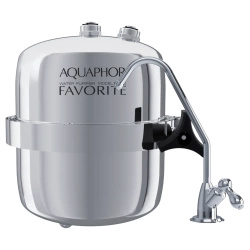
An Israeli company, Alumor, has developed a solar-powered ultraviolet-based water purification system called H2O: Ready. According to the company, the device could provide millions of households in developing countries with clean drinking water. The system uses advanced ultraviolet technology to kill viruses and bacteria. It contains a filter that requires rinsing just a few times a year. The device is lightweight, uses just 4 watts of electricity and purifies water at minimum cost (1L at $0.01). Household members simply connect the device to a jerrycan (or other container) via a pipe and press a button.
Startup Needs Funding

Alumor is seeking $1m to fine-tune the device. This process will comprise of increasing purification capacity from 1 to 2 liters per minute and manufacturing the 1st series. The company aims to sell the devices at cost through non-profit organizations. Alumor’s device avoids problems that have dogged other water purification systems in the developing world. Those challenges usually include a need for professional maintenance backup, replacement parts and accessories/materials such as chlorine. The latter are not always easy to find.
250M Target Market
 The potential target market is estimated at 250 million households. Lack of access to filtered and safe water is a significant issue, particularly in developing countries. A significant proportion of the world’s population, primarily in rural areas, does not have access to safe drinking water. The situation is compounded by the fact that the sources of water in many developing countries are often polluted. This can lead to severe health problems.
The potential target market is estimated at 250 million households. Lack of access to filtered and safe water is a significant issue, particularly in developing countries. A significant proportion of the world’s population, primarily in rural areas, does not have access to safe drinking water. The situation is compounded by the fact that the sources of water in many developing countries are often polluted. This can lead to severe health problems.
In addition, there are other negative impacts of the lack of filtered and safe water. For example, women and children, who are often responsible for collecting water in many societies, are often forced to walk long distances to obtain water. This can limit their ability to pursue other activities like education and income generation. The lack of access to clean water also leads to reduced agricultural productivity and, consequently, food shortages. Finally, climate change has contributed to the water crisis in many regions, with droughts and extreme weather events causing water scarcity in many areas. As a result, access to clean water has become a significant global challenge that requires urgent attention and investment.
Learn about a new revolutionary technology developed by researchers at ETH Zurich.

